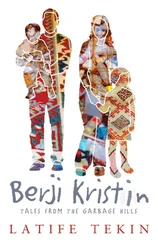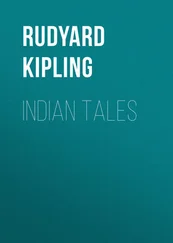Rudyard Kipling - Plain Tales from the Hills
Здесь есть возможность читать онлайн «Rudyard Kipling - Plain Tales from the Hills» весь текст электронной книги совершенно бесплатно (целиком полную версию без сокращений). В некоторых случаях можно слушать аудио, скачать через торрент в формате fb2 и присутствует краткое содержание. ISBN: , Жанр: Классическая проза, на английском языке. Описание произведения, (предисловие) а так же отзывы посетителей доступны на портале библиотеки ЛибКат.
- Название:Plain Tales from the Hills
- Автор:
- Жанр:
- Год:неизвестен
- ISBN:978-1-4340-0550-2
- Рейтинг книги:5 / 5. Голосов: 1
-
Избранное:Добавить в избранное
- Отзывы:
-
Ваша оценка:
- 100
- 1
- 2
- 3
- 4
- 5
Plain Tales from the Hills: краткое содержание, описание и аннотация
Предлагаем к чтению аннотацию, описание, краткое содержание или предисловие (зависит от того, что написал сам автор книги «Plain Tales from the Hills»). Если вы не нашли необходимую информацию о книге — напишите в комментариях, мы постараемся отыскать её.
Plain Tales from the Hills — читать онлайн бесплатно полную книгу (весь текст) целиком
Ниже представлен текст книги, разбитый по страницам. Система сохранения места последней прочитанной страницы, позволяет с удобством читать онлайн бесплатно книгу «Plain Tales from the Hills», без необходимости каждый раз заново искать на чём Вы остановились. Поставьте закладку, и сможете в любой момент перейти на страницу, на которой закончили чтение.
Интервал:
Закладка:
This unbridled license in amusements not worth the trouble of breaking line for, much less rioting over, endured for six months — all through one cold weather — and then we thought that the heat and the knowledge of having lost his money and health and lamed his horses would sober The Boy down, and he would stand steady. In ninety-nine cases out of a hundred this would have happened. You can see the principle working in any Indian Station. But this particular case fell through because The Boy was sensitive and took things seriously — as I may have said some seven times before. Of course, we couldn’t tell how his excesses struck him personally. They were nothing very heart-breaking or above the average. He might be crippled for life financially, and want a little nursing. Still the memory of his performances would wither away in one hot weather, and the shroff would help him to tide over the money troubles. But he must have taken another view altogether and have believed himself ruined beyond redemption. His Colonel talked to him severely when the cold weather ended. That made him more wretched than ever; and it was only an ordinary «Colonel’s wigging!»
What follows is a curious instance of the fashion in which we are all linked together and made responsible for one another. The thing that kicked the beam in The Boy’s mind was a remark that a woman made when he was talking to her. There is no use in repeating it, for it was only a cruel little sentence, rapped out before thinking, that made him flush to the roots of his hair. He kept himself to himself for three days, and then put in for two days’ leave to go shooting near a Canal Engineer’s Rest House about thirty miles out. He got his leave, and that night at Mess was noisier and more offensive than ever. He said that he was «going to shoot big game, and left at half-past ten o’clock in an ekka». Partridge — which was the only thing a man could get near the Rest House — is not big game; so every one laughed.
Next morning one of the Majors came in from short leave, and heard that The Boy had gone out to shoot «big game.» The Major had taken an interest in The Boy, and had, more than once, tried to check him in the cold weather. The Major put up his eyebrows when he heard of the expedition and went to The Boy’s room, where he rummaged.
Presently he came out and found me leaving cards on the Mess. There was no one else in the ante-room.
He said: «The Boy has gone out shooting. Does a man shoot tetur with a revolver and a writing-case?»
I said: «Nonsense, Major!» for I saw what was in his mind.
He said: «Nonsense or nonsense, I’m going to the Canal now — at once. I don’t feel easy.»
Then he thought for a minute, and said: «Can you lie?»
«You know best,» I answered. «It’s my profession.»
«Very well,» said the Major; «you must come out with me now — at once — in an ekka to the Canal to shoot black-buck. Go and put on shikar-kit — quick — and drive here with a gun.»
The Major was a masterful man; and I knew that he would not give orders for nothing. So I obeyed, and on return found the Major packed up in an ekka — gun-cases and food slung below — all ready for a shooting-trip.
He dismissed the driver and drove himself. We jogged along quietly while in the station; but as soon as we got to the dusty road across the plains, he made that pony fly. A country-bred can do nearly anything at a pinch. We covered the thirty miles in under three hours, but the poor brute was nearly dead.
Once I said: «What’s the blazing hurry, Major?»
He said, quietly: «The Boy has been alone, by himself, for — one, two, five — fourteen hours now! I tell you, I don’t feel easy.»
This uneasiness spread itself to me, and I helped to beat the pony.
When we came to the Canal Engineer’s Rest House the Major called for The Boy’s servant; but there was no answer. Then we went up to the house, calling for The Boy by name; but there was no answer.
«Oh, he’s out shooting,» said I.
Just then I saw through one of the windows a little hurricane-lamp burning. This was at four in the afternoon. We both stopped dead in the verandah, holding our breath to catch every sound; and we heard, inside the room, the «brr — brr — brr» of a multitude of flies. The Major said nothing, but he took off his helmet and we entered very softly.
The Boy was dead on the charpoy in the centre of the bare, lime-washed room. He had shot his head nearly to pieces with his revolver. The gun-cases were still strapped, so was the bedding, and on the table lay The Boy’s writing-case with photographs. He had gone away to die like a poisoned rat!
The Major said to himself softly: «Poor Boy! Poor, poor devil!» Then he turned away from the bed and said: «I want your help in this business.»
Knowing The Boy was dead by his own hand, I saw exactly what that help would be, so I passed over to the table, took a chair, lit a cheroot, and began to go through the writing-case; the Major looking over my shoulder and repeating to himself: «We came too late! — Like a rat in a hole! — Poor, poor devil!»
The Boy must have spent half the night in writing to his people, and to his Colonel, and to a girl at Home; and as soon as he had finished, must have shot himself, for he had been dead a long time when we came in.
I read all that he had written, and passed over each sheet to the Major as I finished it.
We saw from his accounts how very seriously he had taken everything. He wrote about «disgrace which he was unable to bear» — «indelible shame» — «criminal folly» — «wasted life,» and so on; besides a lot of private things to his Father and Mother too much too sacred to put into print. The letter to the girl at Home was the most pitiful of all; and I choked as I read it. The Major made no attempt to keep dry-eyed. I respected him for that. He read and rocked himself to and fro, and simply cried like a woman without caring to hide it. The letters were so dreary and hopeless and touching. We forgot all about The Boy’s follies, and only thought of the poor Thing on the charpoy and the scrawled sheets in our hands. It was utterly impossible to let the letters go Home. They would have broken his Father’s heart and killed his Mother after killing her belief in her son.
At last the Major dried his eyes openly, and said: «Nice sort of thing to spring on an English family! What shall we do?»
I said, knowing what the Major had brought me but for: «The Boy died of cholera. We were with him at the time. We can’t commit ourselves to half-measures. Come along.»
Then began one of the most grimy comic scenes I have ever taken part in — the concoction of a big, written lie, bolstered with evidence, to soothe The Boy’s people at Home. I began the rough draft of a letter, the Major throwing in hints here and there while he gathered up all the stuff that The Boy had written and burnt it in the fireplace. It was a hot, still evening when we began, and the lamp burned very badly. In due course I got the draft to my satisfaction, setting forth how The Boy was the pattern of all virtues, beloved by his regiment, with every promise of a great career before him, and so on; how we had helped him through the sickness — it was no time for little lies, you will understand — and how he had died with out pain. I choked while I was putting down these things and thinking of the poor people who would read them. Then I laughed at the grotesqueness of the affair, and the laughter mixed itself up with the choke — and the Major said that we both wanted drinks.
I am afraid to say how much whiskey we drank before the letter was finished. It had not the least effect on us. Then we took off The Boy’s watch, locket, and rings.
Читать дальшеИнтервал:
Закладка:
Похожие книги на «Plain Tales from the Hills»
Представляем Вашему вниманию похожие книги на «Plain Tales from the Hills» списком для выбора. Мы отобрали схожую по названию и смыслу литературу в надежде предоставить читателям больше вариантов отыскать новые, интересные, ещё непрочитанные произведения.
Обсуждение, отзывы о книге «Plain Tales from the Hills» и просто собственные мнения читателей. Оставьте ваши комментарии, напишите, что Вы думаете о произведении, его смысле или главных героях. Укажите что конкретно понравилось, а что нет, и почему Вы так считаете.












